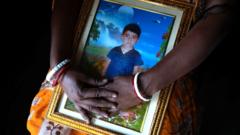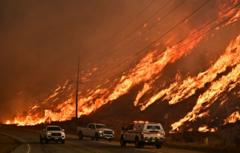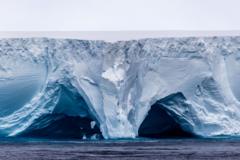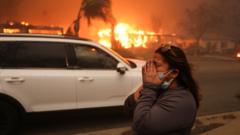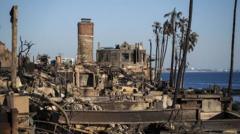International judges will assess the obligations and impacts of countries regarding climate change during a historic hearing.
UN's Top Court Hears Landmark Climate Case
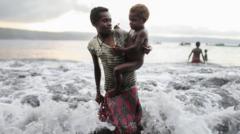
UN's Top Court Hears Landmark Climate Case
A critical gathering at the International Court of Justice aims to clarify nations' climate responsibilities.
The International Court of Justice (ICJ) has embarked on pivotal hearings aimed at defining the legal duties of governments in the battle against climate change. Countries from around the globe, including Vanuatu—the Pacific island nation that sparked this significant initiative—are presenting evidence before the court in The Hague.
With testimony from nearly 100 nations, the hearings seek to address two fundamental questions: What responsibilities do countries bear in combating climate change, and what recourse do they have for damage caused by global warming? Although the court’s ruling will not be legally binding, it may strengthen climate change lawsuits globally.
The impetus for seeking a legal opinion from the ICJ arose five years ago, championed by law students in Fiji. This effort took on urgency when Vanuatu experienced devastating impacts from climate change, with around 80% of its population affected by severe cyclones last year. The government even declared a six-month state of emergency in response to the calamity.
Under pressure from Vanuatu and numerous nations, the UN General Assembly has tasked the ICJ with determining the international obligations of countries to safeguard the Earth's climate and the implications of any actions that cause significant environmental harm.
Today, Vanuatu leads the hearing by providing evidence. Ralph Regenvanu, Vanuatu's special envoy, stated, "We are on the frontline of climate change impact... Our pursuit of an advisory opinion from the ICJ is a crucial moment... that establishes clear legal obligations for climate action."
While the outcome may not translate to immediate legal consequences, it can hold substantial influence for nations, particularly small island states, seeking reparations from industrialized countries due to the detrimental effects of historical greenhouse gas emissions.
Coinciding with the hearings is the recent conclusion of COP29 climate summit in Azerbaijan, where the decision by wealthier nations to allocate $300 billion a year in climate financing by 2035 was met with frustration from developing countries—who deemed it grossly inadequate.
The ICJ will also host representatives from major global players, including the USA, China, and oil-producing nations within OPEC. The hearings, scheduled to continue until December 13, 2023, will lead to an anticipated opinion from the court in 2025.




